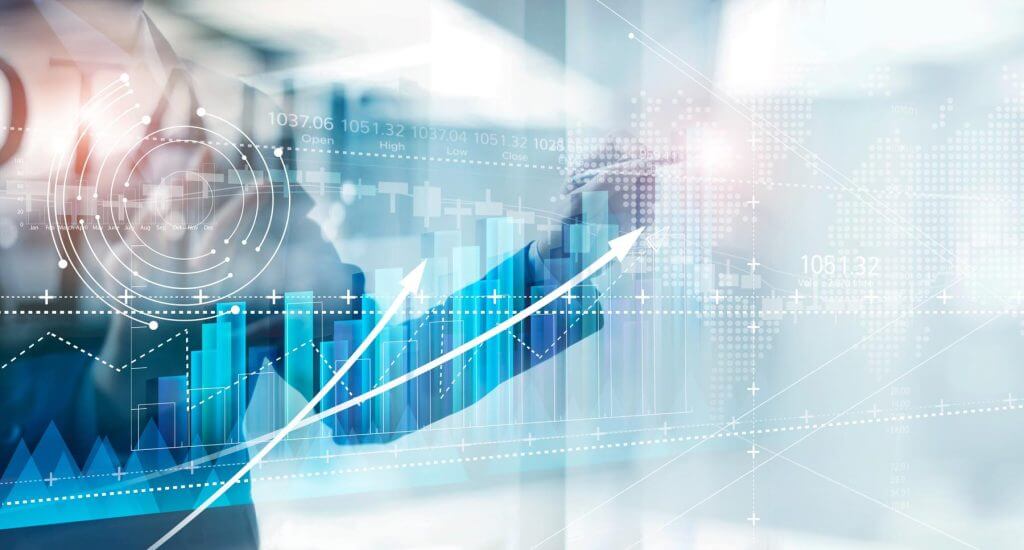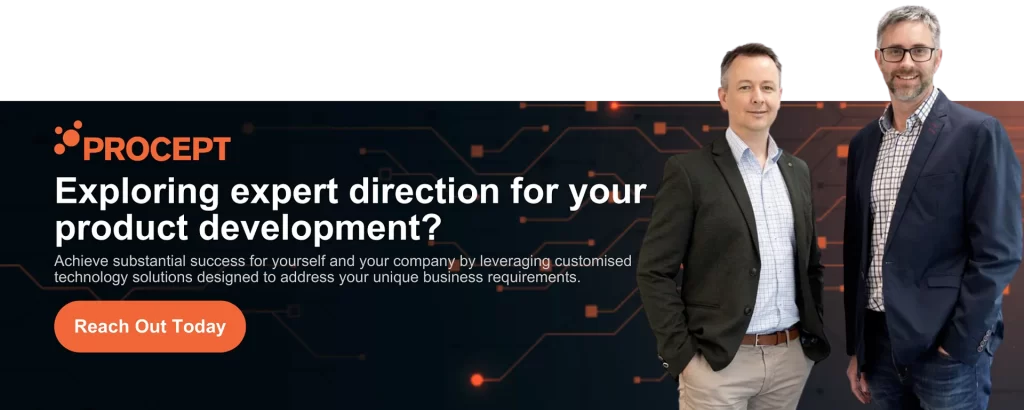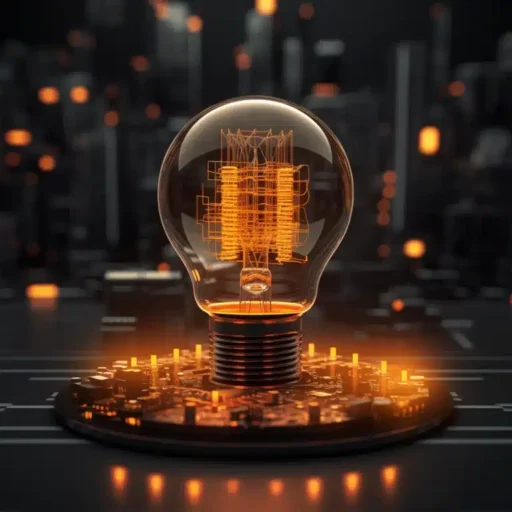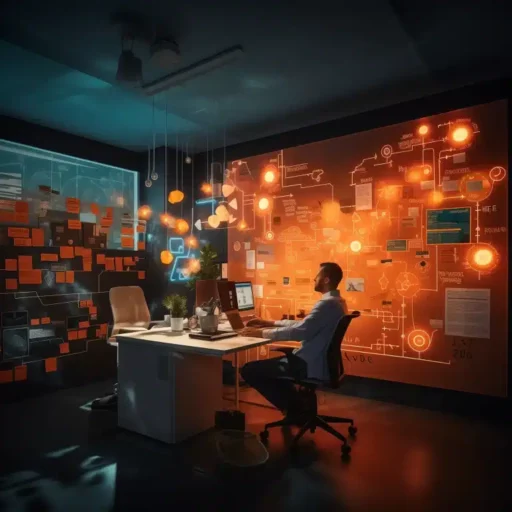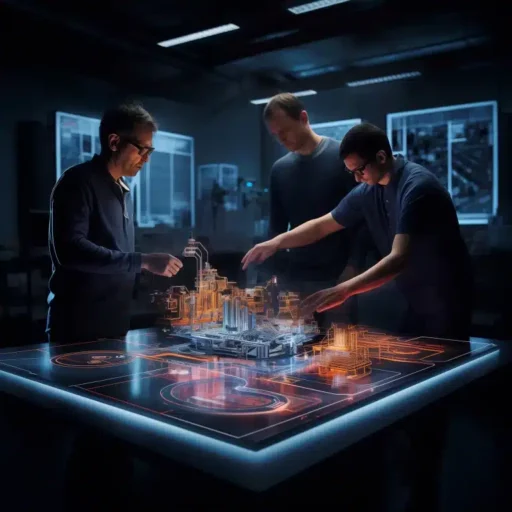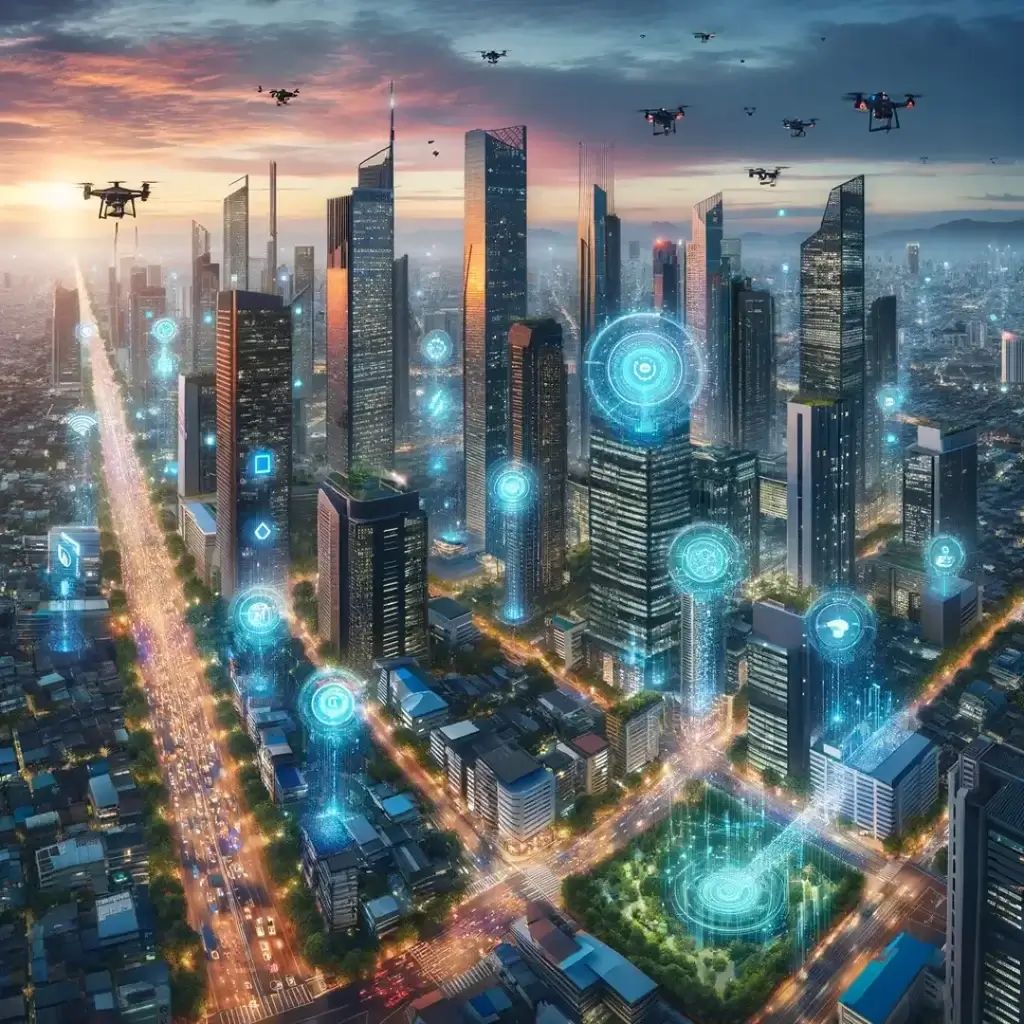
The Role of IoT Development in Creating Sustainable Smart Cities

An increasing number of cities worldwide are exploring the use of Internet of Things (IoT) development for greater sustainability. The latest technologies are helping to build smart cities with efficient energy distribution, waste collection, and other advantages.
What Is IoT Development?
The Internet of Things (IoT) is a commonly used term to describe a network of internet connected physical devices and/or sensors that gather and deliver data to an end user or organisation, via the internet.
An IoT network may include a wide array of sensors and electronic devices sharing data on a central cloud based system.
IoT development includes a combination of hardware and software development. Developers create physical hardware that users deploy. The hardware communicates using software and wireless technologies, such as Wi-Fi, Bluetooth, and cellular networks.
For example, sustainable cities frequently rely on smartphones and sensors connected with high-speed networks. From there, software applications collect and analyse data. City departments, utilities, service providers and other groups can use the data to improve the quality of life for residents.
Developing IoT solutions also requires a tailored approach, as the system needs to meet the specific needs of each user. It is a collaborative process that often includes city leaders and administrators, and smart city solutions service providers.
Five Smart City Technologies Currently Used Around the World
IoT development is already in use. Here are some examples of sustainable smart city projects that rely on IoT technologies:
- Smart grids
- Smart buildings
- Intelligent transportation systems (ITS)
- Waste management
- Urban agriculture
1. Smart Grids
Smart grids help optimise energy generation and distribution. These systems rely on IoT sensors to monitor energy usage in real-time. Utility companies adjust operations based on demand, helping to reduce waste and save costs.
Barcelona and other major cities around the globe use smart grids to increase the efficiency of their electrical grids and utilities.
Adopting these technologies helps utility companies better prepare for fluctuations in energy usage. Along with lowering costs and waste, smart grids can help reduce the risk of blackouts due to overburdened electrical grids.
2. Smart Buildings
Smart buildings use IoT technologies for increased energy efficiency, communication, and security. This may include the use of sensors to optimise energy usage.
For example, the IoT software may monitor temperatures to increase the efficiency of heating and cooling systems, resulting in a decrease in energy consumption.
Sensors, cameras, and other equipment can also assist with communication and improve the security of a building. These devices help monitor the premises and keep occupants connected.
3. Intelligent Transportation Systems
Smart transportation systems monitor a variety of factors to optimise the way people get around the city. The right solutions can help reduce congestion and improve the flow of traffic.
IoT sensors may monitor air quality and traffic conditions. The software can analyse data from the sensors and help authorities make better decisions related to transportation.
4. Waste Management
IoT development projects often rely on sensors, such as the use of sensors to monitor waste levels and optimise waste management. Waste management companies can optimise their collection schedules and cut down on waste by remotely monitoring containers and waste disposal sites.
Smart waste management can limit the need to pick up trash on a set schedule. Waste management companies gain the flexibility to collect waste only when necessary, reducing labour costs and fuel emissions.
5. Urban Agriculture
Many sustainable cities have adopted smart agriculture projects. These projects are often designed to improve the quality and yield of crops in urban areas, which provides a more sustainable food source for the local population.
These are just a few examples of smart city technologies used in the world today. Now let’s look at some real-life examples of cities that have adopted some of these IoT solutions.
Case Studies of Successful Smart City Projects
Many areas have already started leveraging the power of IoT development to create more sustainable cities.
For example, Singapore uses a variety of smart technologies in the public and private sectors, such as a contactless payment system for public transport. The city also uses smart technology in its digital health system and has started work on a new, vehicle-free smart city.
The city of Oslo, Norway plans for all vehicles to be electric within the next two years and to develop zero-emission construction zones. These goals rely on smart technologies, such as monitoring equipment, to track and monitor the city’s progress.
Amsterdam is another of the top sustainable cities due to its adoption of IoT development. The city started implementing IoT projects in 2009, including the use of solar-powered bus stops, energy-efficient roofing, and automatically dimmable lights.
New York City launched a smart city program in 2020. This program included the use of hundreds of smart sensors placed throughout the city. It also covered a variety of departments, including waste management and transportation.
Seoul, South Korea has also implemented smart sensors throughout the city limits. The city has many smart city IoT projects, including projects designed to improve traffic and reduce crime.
Seoul also developed IoT technology to better monitor senior citizens. When sensors detect no movement or abnormal temperatures, the software alerts emergency services and case workers.
Many existing IoT projects can be implemented to improve the overall well-being of citizens in smart cities as well.
As interest in smart cities grows, it helps to be one of the early innovators in this field. Cities and municipalities that are interested in increasing their efficiency in any area may benefit from one or more IoT technologies.
Exploring IoT Development Solutions
If you’re considering IoT solutions for your local area or business, contact our team at Procept.
Our expertise in the IoT field allows us to develop tailored solutions for virtually any area, including the public sector. We have helped create cloud-managed parking management systems for smart cities and advanced monitoring equipment for maintaining the health of ecosystems.
Contact our team to explore how IoT development can help your project and organisation. Contact us today for a consultation.
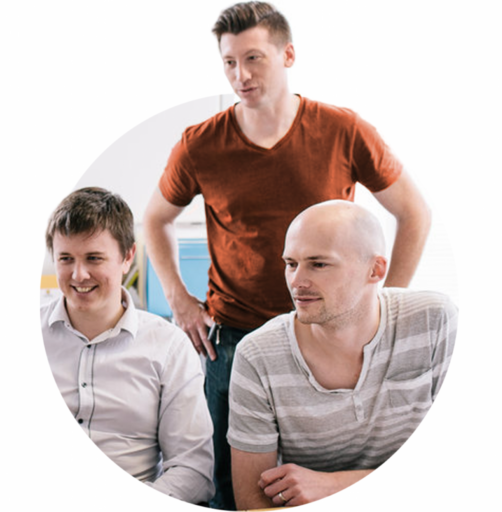
Hi, we’re the award-winning engineering team at Procept.
We live and breath product development. Since 2006, our vision has been to make a positive difference through the application of the latest technologies to solve real-world problems and improve people’s lives.
Learn more about our product development services, engineering services, or joining our engineering team. To work with us on your next product development project, contact our team.
Let’s innovate!
